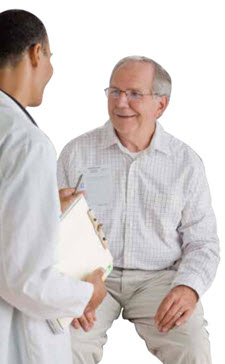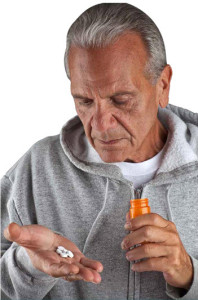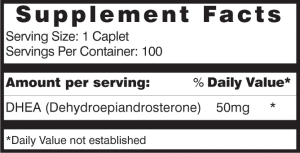How does Testosterone Affect Sexual Health?
Can testosterone improve sexual health?
Many factors fuel the sexual health of men as well as their sexual performance, ability to perform and changes in their ability to function as they once could. Low testosterone plays a significant factor in all of these and treating Low T can improve interest in sex, sexual function and sexual performance.
The Effects of Low T on Sexual Health
While we do understand that testosterone production comes from a healthy HPA Axis, or communication between your Hypothalamus, Pituitary Glands, Adrenals and Testicles, science still does not understand exactly how testosterone improves sexual health or performance. As you probably noticed in High School, College or amongst your friends, there is no normal level of sexual interest amongst men or women.
Like your testosterone levels, it peaks around 19 and usually slowly declines for the rest of your life. Each person takes a different path, however, and declining sexual interest is typically tied to declining testosterone levels. These levels can follow a steady decline, or can be accelerated by health issues, stress, poor sleep and even by keeping sexually active. Many men can lose sexual interest at normal testosterone levels or maintain sexual health even at low testosterone levels but as testosterone levels get depleted it will universally effect sexual interest and performance.
One study of Men in the NE of the US showed 11% of men had a lack of sex drive. The researchers also found 28% of men with low testosterone levels had a low libido which means that men with low testosterone levels were 256% more likely to have low sex drive or low libido. The average age of the study participants was 47.
Low Testosterone and Erectile Dysfunction

Erectile Dysfunction, or ED, can be caused by many health problems including low testosterone, atherosclerosis (hardening of the arteries), diabetes, high blood pressure and high cholesterol. Those last three items all cause hardening of the arteries. If they are damaged, the penis has difficulty dilating and bringing sufficient blood flow required for an erection. Testosterone therapy can lead to increased libido and interaction and connection between the brain and penis.
Viagra is an example of an oral PDE5 inhibitors that encourage an increase in nitric oxide which dilates the blood vessels and encourages more blood flow to the penis. Three potent selective PDE5 inhibitors (sildenafil (Viagra; Pfizer), tadalafil (Cialis; Lilly), and vardenafil (Levitra; Bayer)) are currently available. Testosterone therapy will often increase the libido and sexual function to erase Erectile Dysfunction, but often our physicians will prescribe a combination with PDE5 inhibitors as well.
Studies are showing that men with classic hypogonadism, or low testosterone, have a reduced response to PDE5 inhibitors and see a significant response improvement with Testosterone Therapy. For patients who fail to see ED improvement following TRT and PDE5 inhibitors we can prescribe and test the direct injectable Trimix.
The Connection of Testosterone Levels and Sexual Health
 While this sounds like a juvenile sex joke, we are now seeing that lowered testosterone levels lead to a decreased sex life, but that a decreased sex life also can lower ones testosterone levels in a study at the University of Sydney in Australia.
While this sounds like a juvenile sex joke, we are now seeing that lowered testosterone levels lead to a decreased sex life, but that a decreased sex life also can lower ones testosterone levels in a study at the University of Sydney in Australia.
Researchers followed 1,700 men over the age of 70. The study asked questions and measured a number of things. The study tracked the ability to keep and maintain an erection. It measured the frequency that sexual activity led to ejaculation (through masturbation or sexual intercourse). The study also tracked libido and sexual health versus earlier times in their lives.
During the study, all of the men had blood tests regularly taken and the following tests measured: Total Testosterone, Free Testosterone, Estrogen, SHGB and some other hormones.
Researchers discovered a 10% reduction in testosterone levels led to a noticeable decrease in sexual activity but no change in the number of erections. Another study showed that testosterone levels increased on night after sexual activity without any increase on nights where there was no sexual activity. Physicians are concerned that a lack of sexual activity can accelerate low testosterone.
 A further study showed that men taking Cialis had higher testosterone levels than men taking Viagra. Both drugs are PDE5 inhibitors to boost nitric oxide and blood flow to the penis. Cialis, however, last 36 hours for most people rather than 6-8 hours. Cialis users typically have more intercourse over this extended time period.
A further study showed that men taking Cialis had higher testosterone levels than men taking Viagra. Both drugs are PDE5 inhibitors to boost nitric oxide and blood flow to the penis. Cialis, however, last 36 hours for most people rather than 6-8 hours. Cialis users typically have more intercourse over this extended time period.
The researchers concluded that “as it is unlikely that the two drugs have a different direct effect on the pituitary-testis axis, this effect is probably due to the higher frequency of full sexual intercourse.”
A Chinese study observed a group of men that abstained from ejaculation for one week and had their testosterone levels tested each day. Research showed that abstaining for 6 days had no effect on testosterone levels, however, on the seventh day the testosterone levels surged to 145.7% of the baseline then plummeted on the 8th day.
The researchers believe the testosterone surge was the result of a negative feedback suppression of Luteinizing hormone (LH secretion) which is essential for testosterone production.
Hormone Therapeutics aims to help people looking to improve and optimize their health through natural means or through the guidance of our physicians.
Don’t miss out our free weekly tips and news on Low T, hormone balancing, healthy living, nutrition and a lot more.
Want more?

Sign up today and Get our ebook, ‘Naturally Increase Your Testosterone Levels’ absolutely FREE.
How does Testosterone Affect Sexual Health?
Saleamp Design November 15th, 2016
Posted In: Low T Info
Tags: atherosclerosis, Bayer, blood flow, boner, Cialis, diabetes, dilates, ED, erectile dysfunction, erection, high blood pressure, high cholesterol, hypogonadism, inhibitors, intercourse, Levitra, LH, LH secretion, libido, Lilly, Lutenizing hormone, nitric oxide, PDE5, PDE5 inhibitors, penis, Pfizer, pituitary, sex drive, sexual health, sexual performance, sildenafil, tadalafil, testes, testicles, testosterone level, testosterone therapy, trimix, TRT, vardenafil, Viagra
Aromatase inhibitor benefits and side effects as part of Testosterone Therapy
Any significant research into TRT will likely also discuss aromatase inhibitor and estrogen management. You will definitely find this on the ‘Bro-Science’ bodybuilding sites focusing on bulking and supraphysiological dosages of testosterone and other anabolic-androgenic steroids that aromatize to estrogen and estradiol.
What is an aromatase inhibitor and what does it do?
Aromatase is the enzyme complex that converts androgens like testosterone into estradiol in men. Weight gain and aging increase the risk for testosterone conversion into estradiol. Estradiol is the “bad estrogen”, responsible for issues including (often) prostate issues, gynocomastia and erectile/libido/hormonal problems. Men find aromotase in their fat cells and as they expand our estradiol will find itself increasing at the same time our testosterone levels dwindle.
An aromatase inhibitors binds to aromatase, disabling it.
Why take an aromatase inhibitor?
AIs will reduce Estradiol levels. Symptoms of high estradiol include gynecomastia (male breast development and enlargement) and edema (fluid retention in the extremities).
Avoid or Reverse Gynecomastia – Estradiol plays a major role in gynocomastia and an AI like Arimidex (anastrozole) – occasionally letrozole is used – is quite effective in managing estradiol levels. The most important thing is to blood test and measure the estradiol levels and look at is on it’s own and as a % of Total Testosterone levels. if a man goes over a total testosterone of about 600 ng/dl, he will very likely need an aromatase inhibitor. The symptoms for elevated estradiol can mimic those for low testosterone, including mood issues, low libido, erectile dysfunction and other estrogenic side effects.

Did you really want to see a before pic?
Clinical research has looked into the use of aromatase inhibitors as an option to testosterone replacement in older men, and to delay bone closure in adolescent boys who are short, to allow them to gain more height.
Is Estradiol important? Role in men of Estradiol:
Since Estradiol is known as a female hormone and elevated levels can cause gynecomastia or edema, many men believe they need to eliminate or suppress it. This is not true, the body produces estrogens in men because we need it.
Estradiol is important in determining bone mineral density in men. Low levels may lead to bone loss and osteoporosis in elderly men. Low estradiol levels increase fat and decrease sex drive and erectile function.
We do not know the optimal estreadiol range but do know that low levels are not good. We also believe taking anastrozole without clinically diagnosed high estradiol levels and symptoms (gynecomastia and edema) can be counterproductive for men on testosterone therapy. Get your advice from a trained HRT/TRT physician and not someone in the gym or a “Bro-science” website.
Potential side effects of Aromatase inhibitors
Aromatase deficiency has been linked to increased insulin resistance, which is a precursor to type 2 diabetes. Animal studies have shown that an absence of aromatase in male rats increases insulin resistance as well as body fat, and “fatty liver” develops. When young, healthy men were given an aromatase inhibitor, they developed slightly increased body fat, particularly within the waist (i.e., intra-abdominal fat). This type of fat is associated with the development of metabolic syndrome, which includes insulin resistance.
Patients with low testosterone should be wary of automatically using aromatase inhibitors, due to a number of potential metabolic effects. For the AAS using bodybuilder, aromatase inhibitors can be necessary to combat aromatization from supraphysiologic testosterone and other AAS dosages. The most important thing is to work under the guidance of a trained HRT/TRT physician and get tested regularly.
Aromatase inhibitor benefits and side effects as part of Testosterone Therapy
Saleamp Design September 13th, 2016
Posted In: Low T Info
Tags: aromatase, benefits to your body, erectile dysfunction, estradiol, estrogen, hormone replacement therapy, hypogonadism, low t, low testosterone, sex drive, testosterone
Revealed: Testosterone Therapy May Enhance Sexual Drive and Energy Levels
 In a major new study published in the New England Journal of Medicine, testosterone therapy was found to improve physical ability and mood as well as sexual function. The study was a collaboration of researchers from 12 medical centers spanning the United States.
In a major new study published in the New England Journal of Medicine, testosterone therapy was found to improve physical ability and mood as well as sexual function. The study was a collaboration of researchers from 12 medical centers spanning the United States.
Mark E. Molitch, MD, an endocrinologist, was one of the authors of the study. Dr. Molitch is the Martha Leland Sherwin professor in medicine-endocrinology at the Northwestern University Feinberg School of Medicine.
“In recent years, talk about low testosterone and its treatments have become part of the public discussion,” explained Molitch. “Yet questions have always lingered about the treatment’s effectiveness and safety. I believe the results of this large, nationwide study will provide doctors and patients answers and guidance they’ve been looking for.”
Link between Testosterone, Mood, Libido and Physical Health
The team’s purpose was to determine the link, if any, between testosterone levels and the mood, libido, and physical ability of men over the age of 65. It is a well-established fact that a man’s testosterone levels and production decrease as he ages. Many men also experience lowered sex drive and energy levels as they become older, tiring and fatiguing more easily. For the first time, low testosterone has been established as the cause of these symptoms.
Testosterone Therapy Study Grant
Previously, the Institute for Men reported that there was insufficient evidence of testosterone therapy’s beneficial effects, if any. A grant from the National Institute on Aging and National Institutes of Health funded the new study to determine low testosterone could be the cause of what many consider the normal effects of aging.
Health Study on Testosterone Therapy
The subjects of the study were 790 men, all of whom were over the age of 65 and tested for low blood testosterone, as well as suffering from decreased sexual desire and physical function. Some participants in the study were given testosterone treatments in the form of a gel to apply directly to the skin. The medication increased the subjects’ testosterone levels to the normal range for men aged 19-40. The treatments and study of their effects lasted for over a year.
The study participants who received the testosterone treatments did not report increased energy, but their mood, libido, and physical function did improve. By measuring the distance walked in six minutes, the researchers were able to determine a small increase in the physical abilities of men in the study. There was also a decrease in symptoms of depression, such as feelings of sadness and listlessness.
“Men in the study experienced an increased sexual desire and small improvements in their mood and physical function,” explained Molitch. “Importantly, there was no evidence of an increase in heart or other cardiovascular issues in those who received testosterone compared to a placebo. And we monitored the men in this study for at least a year after receiving treatment.”
The study is expected to lead to further research in the potential applications of testosterone therapy in treating many of the problems that come with age. By firmly showing the link between low testosterone and decreased sexual activity, mood, and physical capabilities, the door is open to developing treatments for these common ailments.
Revealed: Testosterone Therapy May Enhance Sexual Drive and Energy Levels
Saleamp Design April 26th, 2016
Posted In: Testosterone Therapy
Tags: depression, endocrinology, fatigue, libido, low t, low testosterone, mood, sadness, sex drive, testosterone, testosterone therapy
Testosterone Levels’ Link to General Health in Men
 A study has shown that serum testosterone concentration in men may have links to fitness and health levels that can serve as an indicator of general health. These studies are exploring how testosterone content may affect all-cause mortality in older men and what it may mean for men as they age.
A study has shown that serum testosterone concentration in men may have links to fitness and health levels that can serve as an indicator of general health. These studies are exploring how testosterone content may affect all-cause mortality in older men and what it may mean for men as they age.
Testosterone Concentration in Men
Testosterone (T) is a hormone produced by males in the testicles after a communication pathway called the HPA axis from the hypothalamus to the pituitary gland through the adrenals and to the gonads. While it is also present by women, it is produced in much higher concentrations in men. It is responsible for maintaining energy, bone density, muscles mass, sperm production and sex drive, along with other traits, and is associated with maintaining many of the characteristics associated with men.
The level of T concentration in men peaks and declines at given points in their lifetime. In general, serum T concentration is highest in adolescence and young adulthood, when it is at its peak. However, as men age, its levels commonly undergo a steady decline. Men peak at age and experience a range of one to two percent decline in their concentration.
Testosterone levels and their links to health
Scientists have been exploring possible links of testosterone as an indicator of men’s health conditions, studying the correlation of low T with general health and mortality.
One study has discovered that while a decline in men’s T levels of one to two percent is considered normal, a sudden and immediate drop in testosterone concentration may be associated with an increased probability of mortality. Based on observations, a low level of serum testosterone concentration in men is seen as associated with risk factors such as diabetes and cardiovascular problems. However, while these conditions may be associated with illnesses and premature death, the FDA is not saying they see a direct causational effect between decreasing testosterone and longevity.
Scientific Testosterone Studies
Currently, available studies tackling the topic have produced mixed results. In one study researching a sample of 794 men, it was concluded that men whose testosterone levels were in the lowest quartile of test subjects were at a 40% greater risk of mortality in comparison to those men who had higher levels. A 15 year study of US military veterans also showed that men with low T levels, treated under physician guidance and supplemented back to normal levels above 500, had lower incidence of heart attack, stroke, prostate cancer and death.
In an effort to consolidate all the data and results from these previous researches, a newer study examined multiple works from 1966 to 2010 in order to gain a clearer and more definitive understanding of testosterone levels and mortality. In addition to testosterone levels, it also took into account lifestyle factors, age and other characteristics that may affect results.
Low Testosterone and Higher Mortality or Cardiovascular Risk
Ultimately, the research concluded that a decline in total testosterone was linked with cardiovascular mortality by 25% and with higher susceptibility to general, all-cause mortality by 35%.
The study did note that other factors may influence the relative risk that was determined in the study. Among these, researchers noted the age of the population studied, the total testosterone level and the amount of years the patient followed up as possible sources of differences within the study. The study also observed the most susceptible demographics for larger relative risks. These included patients with lower levels of testosterone, older men and patients who followed up for a smaller amount of years.
As a conclusion, the data gathered from this research establishes low T as a possible basis or indicator of general health in men. However, while it may be seen as a marker of higher susceptibility to all-cause mortality, it is not strictly a direct source of it. Overall, there remains much to be learned about the two.
Hormone Therapeutics
Aside from being and indicator of one’s general well-being, testosterone levels and hormone balance are traits that can greatly affect one’s quality of life. As men age, it becomes important to monitor these factors in order to gain a better idea of one’s health and fitness.
Hormone Therapeutics specializes in assisting people with endocrine-related concerns in order to help them monitor and regulate the level of hormones in their bodies. If you have any inquiries regarding your testosterone level and what it means for you, Hormone Therapeutics can help you jumpstart your life and provide you with the answers you need.
Testosterone Levels’ Link to General Health in Men
Saleamp Design April 12th, 2016
Posted In: Testosterone Therapy
Tags: adrenals, bone density, cardiovascular, energy, health, hormone replacement therapy, HPA axis, hypothalamus, low t, low testosterone, mortality, muscles mass, pituitary glands, sex drive, sperm, testosterone, testosterone therapy
DHEA Benefits and Frontiers
 Dehydroepiandrosterone (DHEA) is a naturally occurring hormone produced in the body. Secreted by the adrenal glands, it is precursor to other hormones and is transformed by the body into specific hormones once it reaches the target tissue. As a prohormone, most of it effects are related to its end products as opposed to DHEA itself.
Dehydroepiandrosterone (DHEA) is a naturally occurring hormone produced in the body. Secreted by the adrenal glands, it is precursor to other hormones and is transformed by the body into specific hormones once it reaches the target tissue. As a prohormone, most of it effects are related to its end products as opposed to DHEA itself.
DHEA is gaining traction as an anti-aging supplement. It is also being explored as a treatment for several of the health conditions associated with aging.
DHEA and its effects
DHEA is often touted as a “youth restoring” hormone because of its reputation for slowing down the age process, improving general energy levels and cognitive skills. Because of this, many see it as a solution to regulate the side effects of aging and hormone depletion.
DHEA supplementation has shown an increase in energy, cognitive concentration, greater muscle mass/retention and slowing down the progression of Alzheimer disease. DHEA has been shown to have an influence on erectile dysfunction and lack of sex drive. In addition, Men with low DHEA more often experience depression as well as higher risks for overall mortality, including heart failure and cardiovascular threats.
DHEA Decline with Age
Unfortunately, DHEA production declines as its importance increases. DHEA production reaches its highest point during the 20s, but as one grows older, the body’s DHEA production decreases, leaving as little as 20% of the healthy output by the time one reaches 70.
Since it is a precursor to other hormones, this decline leads to a corresponding effect in other hormones as well. Estrogen and testosterone synthesis, in particular, wane once the DHEA levels decrease. This brings forth several consequences for both sexes. In men, specifically, age-related DHEA decrease leads to a decline in testosterone secretion. This decline is compounded because of the larger role DHEA plays in the production of testosterone as we age.
DHEA Supplements and their Effects
From trials, DHEA supplements have been shown to increase muscle mass, strength and physical well-being in general. In addition, tests of increased concentration, in men and women, have been shown to improve sexual potency and mood, with women experiencing less menopausal symptoms after taking supplements. Overall, DHEA has been seen as an anti-aging supplement, providing bone and muscle strength, better moods and immune system and increased memory.
When tested on patients with diabetes and neurological disorders, DHEA was not seen to improve erectile function and potency in patients. It has also been shown to exhibit minimal side effects such as mild acne, swollen ankles and increased facial hair in some women.
The effect of long term treatment on cardiovascular conditions and hormone-dependent tumors has not yet been studied, or have yielded conclusive results.
DHEA Frontiers
DHEA supplements for anti-aging purposes are currently gaining traction. As a precursory hormone, it is seen by many as a way to regulate hormone balance within the body. In addition, DHEA’s reputation in increased bone and muscle strength, as well as energy, has many physicians exploring DHEA supplements and its effect on bone growth, depression, and other mood and cognitive disorders.
Hormone Therapeutics
Hormone Therapeutics specializes in endocrine and hormone-related treatment, and is committed to finding the best treatment for your well-being. If you’re curious about how DHEA supplements can improve you and your life, Hormone Therapeutics can provide the answers for you. Call us today!
Do You Need Help?
Hormone Therapeutics is the leading national company assisting men who want to get their lives back through Hormone Replacement and Testosterone Replacement therapy. Our local physicians are ready to treat you anywhere in the entire country. Hormone Therapeutics is pioneering an easier, cost efficient and more private way for you to work with our clinical advisors and physicians from the privacy of your home or office after your local physical exam confirms you have one of the symptoms of Low T.
Contact us today and our clinical advisors will work with you on a hormone therapy program that may include prescribed hormones, exercise, nutrition and sleep programs to reclaim your vitality.
DHEA Benefits and Frontiers
Saleamp Design April 1st, 2016
Posted In: Health & Wellness
Tags: brain, brain fog, cardiovascular issues, Cialis, Dehydroepiandrosterone, depression, DHEA, ED, energy, erectile dysfunction, fatigue, hair loss, happiness, heart attack, low t, low testosterone, memory, muscle loss, muscle mass, sadness, sex drive, sexual function, stroke, supplements, testosterone, Viagra
Revealed: How Testosterone Converts to Estrogen to Battle Depression
 A recent study at the George Washington University, found that men diagnosed with borderline low testosterone levels had much higher rates of experiencing depression and depressive symptoms compared to the general population. In the study, 56% of the male participants were diagnosed with depression while 25% were already taking medications for this.
A recent study at the George Washington University, found that men diagnosed with borderline low testosterone levels had much higher rates of experiencing depression and depressive symptoms compared to the general population. In the study, 56% of the male participants were diagnosed with depression while 25% were already taking medications for this.
Produced in the testicles, testosterone helps drive a man’s production of sperm, muscle strength and mass, sex drive, facial and body hair and bone density. Men who don’t produce the normal amount of testosterone may have a condition called hypogonadism.
To Ward off Depression, Testosterone Converts to Estrogen
Testosterone, the male sex hormone, seems to have anti-depressant like properties, yet the exact mechanism of its effect still remained unclear.
In 2012, Mohammed Kabbaj and Nicole Carrier, both researchers at the Florida State University College of Medicine, are working to elucidate such mechanisms. They have found out that a particular pathway called MAPK pathway in the hippocampal region, a part of the brain, involved in regulation of stress responses and memory formation, plays a vital role in mediating the effect of testosterone.
Low Testosterone and Depression
Between men and women, females are typically more prone to suffer from depression, however, men diagnosed with low T or hypogonadism are also predisposed to depression or anxiety. Fortunately, hormone replacement therapy has been found to effectively enhance mood.
While it may seem that much is already known, it’s still very important to fully understand where and how these effects are happening so that scientists can develop better, targeted antidepressant therapies.
In the study, Kabbaj performed several experiments in neutered male rats and found that the rats manifested depressive-like behaviors that were then reversed by supplemental testosterone replacement.
According to the researcher, in order to protect males with hypogonadism from developing depression, testosterone in the brain must be converted to estrogen. Kabbaj stated a certain brain enzyme ‘mediates’ the conversion of testosterone to estrogen. Furthermore, inhibiting such enzyme in the hippocampal area has prevented the antidepressant effect of testosterone. This makes the conversion to estrogen vital.
In this study, the antidepressant effect of supplementing low testosterone to normal levels has only manifested in male rats, not in female rats.
Do You Need Help?
Hormone Therapeutics is the leading national company assisting men who want to get their lives back through Hormone Replacement and Testosterone Replacement therapy. Our local physicians are ready to treat you anywhere in the entire country. Hormone Therapeutics is pioneering an easier, cost efficient and more private way for you to work with our clinical advisors and physicians from the privacy of your home or office after your local physical exam confirms you have one of the symptoms of Low T.
Contact us today and our clinical advisors will work with you on a hormone therapy program that may include prescribed hormones, exercise, nutrition and sleep programs to reclaim your vitality.
Revealed: How Testosterone Converts to Estrogen to Battle Depression
Saleamp Design March 29th, 2016
Posted In: Low T Info
Tags: antidepressant, bone density, depression, hair loss, hormone replacement therapy, hypogonadism, low t, muscle strength and mass, sadness, sex drive, sex hormone, sperm, testosterone, testosterone levels
Erectile Dysfunction Drugs
Sexual desire typically increases with testosterone therapy as sexual dreams and both morning erections and evening erections return and increase in frequency and volume to alleviate erectile dysfunction. For some, testosterone therapy alone do not increase the erection strength or duration of the erections as much as desired. There are additional options for men needing additional help to satisfy their ability to perform with alongside their increased sex drive.
Erectile Dysfunction Drugs
Saleamp Design March 16th, 2015
Posted In: Low T Info, Testosterone Therapy, Uncategorized
Tags: Alprostadil, aromatase, Cialis, ED issues, ED supplementation, erectile dysfunction causes, Erectile Dysfunction Drugs, erectile dysfunction issues, erection strength, estradiol, hormone levels, hormone testing, Levitra, morning erections, Papaverine, PD-5, Phentolamine, Phosphodiesterase type 5 inhibitor, prolactin, sex drive, sexual desire, sexual desire and function, sexual dreams, sexual dysfunction, specialized ED physician, stronger erections, testosterone supplementation, testosterone therapy, Thyroid tests, Total Testosterone level, Tri-Mix, TRT, TSH, Viagra, What are PD-5 Inhibitors, What is Tri-Mix
6 Testosterone Boosting Foods
Whether you are on hormone replacement therapy or considering it, there are also many natural ways to boost your male hormones including altering your diet. These foods can help your t levels either in conjunction with TRT or on their own.
T levels peak during adolescence, and start to decline in ones late 20s at the rate of about 1 percent each year, but low levels can be caused by or expedited by stress, a bad diet, obesity, and other factors. Low levels of testosterone cause changes in sexual function, sex drive, insomnia, weight gain, fatigue, reduced strength and muscles, and can even cause depression and an inability to concentrate.
Boost t levels with the following foods:
6 Testosterone Boosting Foods
Hormone Therapeutics April 29th, 2014
Posted In: Health & Wellness
Tags: bad diet, bananas, boost t levels, Brazil nuts, depression, eggs, exhaustion, fatigue, garlic, hormone replacement therapy, improve testosterone, insomnia, losing weight, low t, low testosterone, male hormones, obesity, oysters, reduced strength, sex drive, sexual function, stress, testerone boosting foods, testosterone therapy, tired, weight control, weight gain


